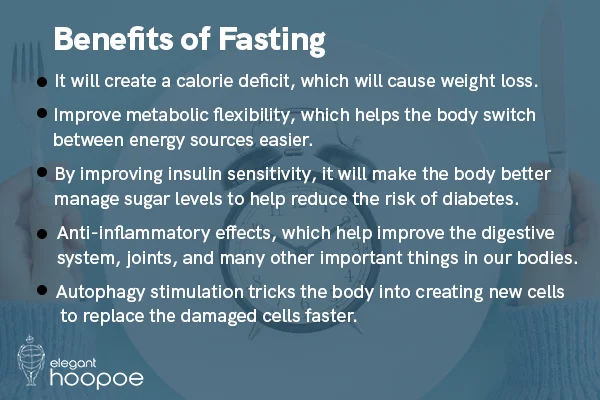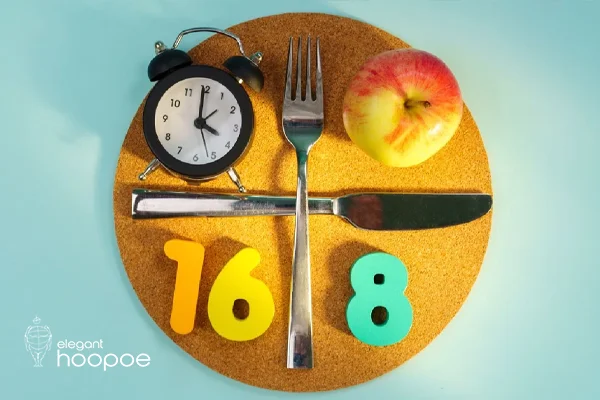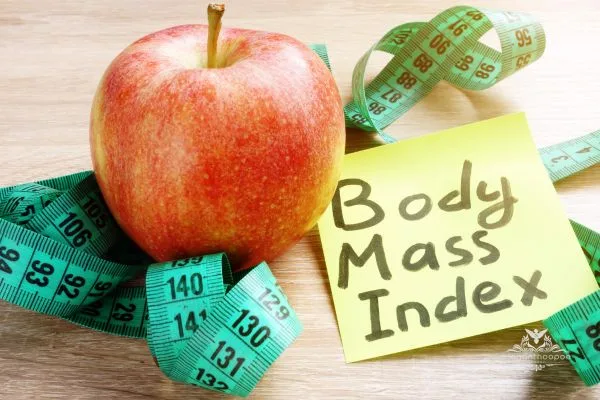Starving Yourself vs Fasting: What’s the Real Difference?
While both involve food restriction, fasting is a voluntary, controlled practice with health benefits like weight loss, improved metabolism, and cellular repair. Starvation, on the other hand, is an involuntary or excessive nutrient deprivation that slows metabolism, causes muscle loss, and can lead to serious health issues. Key differences:
- Fasting (planned, temporary, and strategic) promotes fat burning and overall well-being.
- Starvation (prolonged, involuntary, and harmful) forces the body to break down muscle and weakens vital functions.
Fasting, when done correctly, can be beneficial, but crossing the line into starvation poses significant risks. Always consult a healthcare professional before starting any restrictive diet.
As society’s beauty and health standards change, new methods of achieving these standards keep rising. Managing and planning what we eat is something as old as time, and one certain thing that has been established after all this time is that fasting and starvation are not the same thing, even though public misconception has made it so that some people believe that they work in the same way.
But there are very important differences between these two that need to be seriously considered before starting a diet that is aimed to restrict nutrient intakes. So stick with us as we dive deeper to understand Fasting vs. Starving.
A Great Practice: What is Fasting?

Fasting is a process of willfully refraining from eating food or drinking water for a certain period of time, thus forcing the body into ketosis – the state of burning fat instead of glucose that burns fat more effectively, and thus will additionally help with weight loss and health in general. Furthermore, fasting stimulates autophagy, the body’s natural process of recycling damaged cells to get new and, therefore, healthier ones. Nevertheless, the distinction between fasting and starvation, the latter of which can result in serious health issues, is very important.
Risks of Fasting if Not Done Correctly:
| Risk | Description |
| Nutrient Deficiency | Extended fasting without proper guidance may lead to deficiencies in essential nutrients. |
| Muscle Loss | Prolonged fasting can cause muscle loss if it is not handled properly. |
| Potential Starvation Mode | The body may have to eat its own flesh if fasting goes over the safe limit and health problems will ensue. |
Fasting in History and Religion
Fasting has been a form of a medical treatment and religious manifestation for a long time. It was believed to be a way of having the proper body function to allow the body and mind to recover. Although fasting can be helpful, the adverse effects of prolonged fasting are starvation and health complications. Therefore, it is essential to be aware of fasting and starvation dissimilarities, and doctor consultation before starting any fasting regime is advisable.
Types of Fasting:
| Type of Fasting | Rules & Timings | Benefits |
| Water Fasting | Only water is consumed for a set period. | Triggers autophagy, weight loss. |
| Intermittent Fasting | Eating windows alternate with fasting periods. | Regulates blood sugar, improves metabolism. |
| 16-8 Fasting | 16 hours of fasting, 8-hour eating window. | Simplified daily routine, ketosis activation. |
| Alternate-Day Fasting | Eat one day, fast the next. | Potential weight |
Important Considerations:
- Different types of fasting have their own set of advantages and drawbacks.
- However, not all the methods of fasting might suit every individual.
- It is always wise to discuss with your doctor before starting a fasting plan.
Related article: How much weight will I lose on a 3 day water fast in kg
Dangerous and Unhealthy: What is Starvation?
Starvation, on the other hand, is an involuntary state where a person’s body is missing the essential nutrients needed for it to function. This means that the body will enter certain stages that are designed to control the negative effects of this state, but even after all the struggles, it will still receive some damage caused by this deficiency. Whereas usually this state would occur in cases where a person doesn’t have access to the right foods or enough of them, there are cases where individuals enter this state voluntarily and cause harm to themselves.
Starvation will cause the body to try and maintain its vital functions, and for this matter, it will slow down metabolism, which will cause the burning of the extra fat to slow down, while many are actually trying to achieve weight loss through it, which will render the process obsolete. There are many other negative effects that come with fasting vs starvation, like a weakened immune system and organ failure, which are all considered serious health issues that can lead to the worst possible outcome if not dealt with in a timely manner.
Health Benefits of Fasting vs. the Dangers of Starving
As we mentioned before, starvation mode can be a serious life-threatening condition, while fasting can have a wide range of health benefits. So it is important to understand the difference between fasting and starvation in order to make better decisions if we are deciding to restrict our nutrients and calorie intake.
For example, if we decide to remove a certain food category from our diet and also avoid eating for long and uneven periods, then there is a chance that our body won’t have some of the certain nutrients needed for it to function properly and is in a state of starvation for these reasons. The main difference between these two is that fasting is voluntary, well planned, and done in a timely fashion, while starvation is disorganized and harmful.
Fasting allows our bodies to better utilize their energy reserves and experience various health benefits while in a state of temporary hunger and discomfort, while in cases of starvation, muscle tissue and other parts of the body are being destroyed in order for us to survive. For a better understanding of the difference between fasting and starvation, we will compare the impacts of fasting and starvation in this section.
See also infraslim reviews for Advanced Body Shaping Machine
Benefits of Fasting

Fasting is supposed to be done for an appropriate duration, followed by eating the right things afterwards to ensure that the body receives the nutrients it needs to function properly. And when performed correctly, it can have the following benefits:
- It will create a calorie deficit, which will cause weight loss.
- Improve metabolic flexibility, which helps the body switch between energy sources more easily.
- By improving insulin sensitivity, it will make the body better manage sugar levels to help reduce the risk of diabetes.
- Anti-inflammatory effects, which help improve the digestive system, joints, and many other important things in our bodies.
- Autophagy stimulation tricks the body into creating new cells to replace the damaged cells faster.
There are also some risks involved with fasting that will be covered in the following sections. But for now, let’s take a look at all the dangers that can come with starvation when fasting goes too far.
Dangers of Starvation
We have already emphasized this important fact a few times before that starvation poses severe health risks due to the lack of essential nutrients required for the body’s proper functioning, and now we are going to break down some of these health risks to help paint a better picture of the dangers that prolonged starvation can bring:
- It will cause severe malnutrition in the long term, which will weaken the immune system and can cause organ failure.
- One of the most common side effects of prolonged starvation periods is losing muscle mass, especially among those people who have been following a regular workout plan and have experienced higher metabolic rates during workouts.
- In some cases, it results in hormonal imbalances.
- Can cause an imbalance in the electrolytes and cause an electrolyte disturbance.
- It may impair certain cognitive functions of a person and reduce their ability to interact properly with their environment.
- Furthermore, the body’s response to starvation can have long-lasting effects, with the body slowing down metabolism to make up for the lost weight and the possibility of an eating disorder developing.
Fasting for Wellness: How to Avoid Starvation Risks
Understanding these risks will help us understand the dangers of starving ourselves to lose weight. Starvation may result in some weight loss in the early stages, but after a while it will cause the metabolism to slow down and the muscle tissue to be reduced, which are all against the usual goals of a health improvement and weight loss plan. And most importantly, it will pose dangerous threats to our bodies that are very serious and can result in life-treating and long-term health issues.
Psychological and Emotional Aspects of Fasting vs. Starving

There are several proven psychological and mental effects that may arise from fasting and starvation.
In the case of fasting, research and data shows that fasting mostly causes positive effects like the increase of will power and can only cause temporary negative effects like irritability. According to one study, the only negative effect caused by fasting that has been proven is some levels of irritability which is a very common side effect of hunger, but the same study reveals that fasting can lead to positive emotions such as a sense of reward, accomplishment, control, pride, while another study also suggests that starvation can keep the natural positive emotions like self esteem from occurring. And the finding of a similar research shows that starvation in women that are trying to lose weight can lead to an increase in negative emotions like self doubt, anger and hate while it can also cause positive emotions such as hope and joy to diminish.
While in the case of starvation, many negative effects may arise with no positive mental changes. For example, in this book on starvation during the World War, it has been stated that the physical effects of starvation on the body are wasting, swelling (edema), susceptibility to disease, and eventually death, while the mental effects of it include behavioral changes, food obsession, and irritability.
These behavioral changes combined with the food obsession would mean that after a person has gone through a period of forced starvation to lose weight, not only their body is going to slow down the metabolism to restrict the damage it may receive, but also after a while they may stop eating and develop an eating disorder or suddenly go on an eating frenzy after the temporary ban on food is lifted, which will all translate to a failure in weight loss routines and, even worse, it may cause long-term health problems.
It can be easily seen that there is a big difference between starvation and fasting, and choosing the right one can make a big difference in a person’s life.

Starvation vs Fasting: How to Choose Wisely
By now we have come to the conclusion that starvation will have no positive effects and should never be enforced in a weight loss journey. The most important factor to consider is to choose a diet plan that covers all the necessary nutrients while also creating a calorie deficit.
Fasting vs Starvation: Which is better for weight loss?
Starvation happens in case of a calorie and nutrient intake restriction which consequently causes lose weight fast due to the destruction of the muscles and dehydration. This method will prove to be ineffective as the body will try to repair the damages and replace the important vital resources that have been lost. But in a state of fasting, the metabolism is rebalanced, and the body is forced to tap into the stored fat cells, which will result in slow and reliable weight loss over time.
Fasting vs Starvation: Which is Better for Overall Health?
Starvation puts the body in serious danger; hence it must be avoided by any means possible. However, fasting can bring about a lot of health benefits to people. There are plenty of health advantages that come along with fasting, like a good metabolism, effective and sustainable weight loss, and reduced inflammation.
If you want to know more about the health benefits of fasting and the danger of starvation, then you should definitely take a look at Fasting vs. Starving: Understanding the Key Differences and Health Implications.
The Risks of Fasting vs Starving
There aren’t any serious risks involved with fasting if it’s done properly and if the routine has been devised by a healthcare professional. But if not executed correctly, even fasting can have several risks.
The first obvious risk is for an individual who is following a poorly written fasting plan or is not sticking to the rules of their given plan and not getting the proper nutrient intake that they need. This will cause them to enter starvation mode over time and face the danger that comes with it. Fasting can also cause mild levels of fatigue, dizziness, headaches, and irritability, which are mostly temporary and should go away after the first few days of starting a fast. Finally, some individuals may have some specific health issues that require them to consume nutrients in a very special way. If a fast that is in conflict with these requirements is started, it may lead to serious consequences. Fastings should be discussed with a doctor beforehand. This is especially important for pregnant women, people with eating disorders, and people with diabetes.
Difference Between Fasting vs Starvation: Conclusion
In conclusion, people may still use fasting and starvation interchangeably, but there are huge differences between the two of them. Starvation is usually an involuntary state in which the body has burned through all of its energy resources and is forced to turn to burn the protein in the muscles for survival, while fasting, on the other hand, is a voluntary state of hunger in which the body is given a chance to detox and balance out its important systems and to use the stored fat instead of glucose to promote weight loss.
There are serious life-threatening dangers associated with starvation, while there are many great benefits that come with fasting. When starting a weight loss journey, it’s important to know about the nutrient requirements of your body and to plan accordingly so you won’t enter starvation mode and cause harm to yourself. A consistent successful weight loss journey can benefit from fasting or stopping working if a person is forced into starvation. And so understanding the fasting vs starvation relation will hold a lot of benefits.








